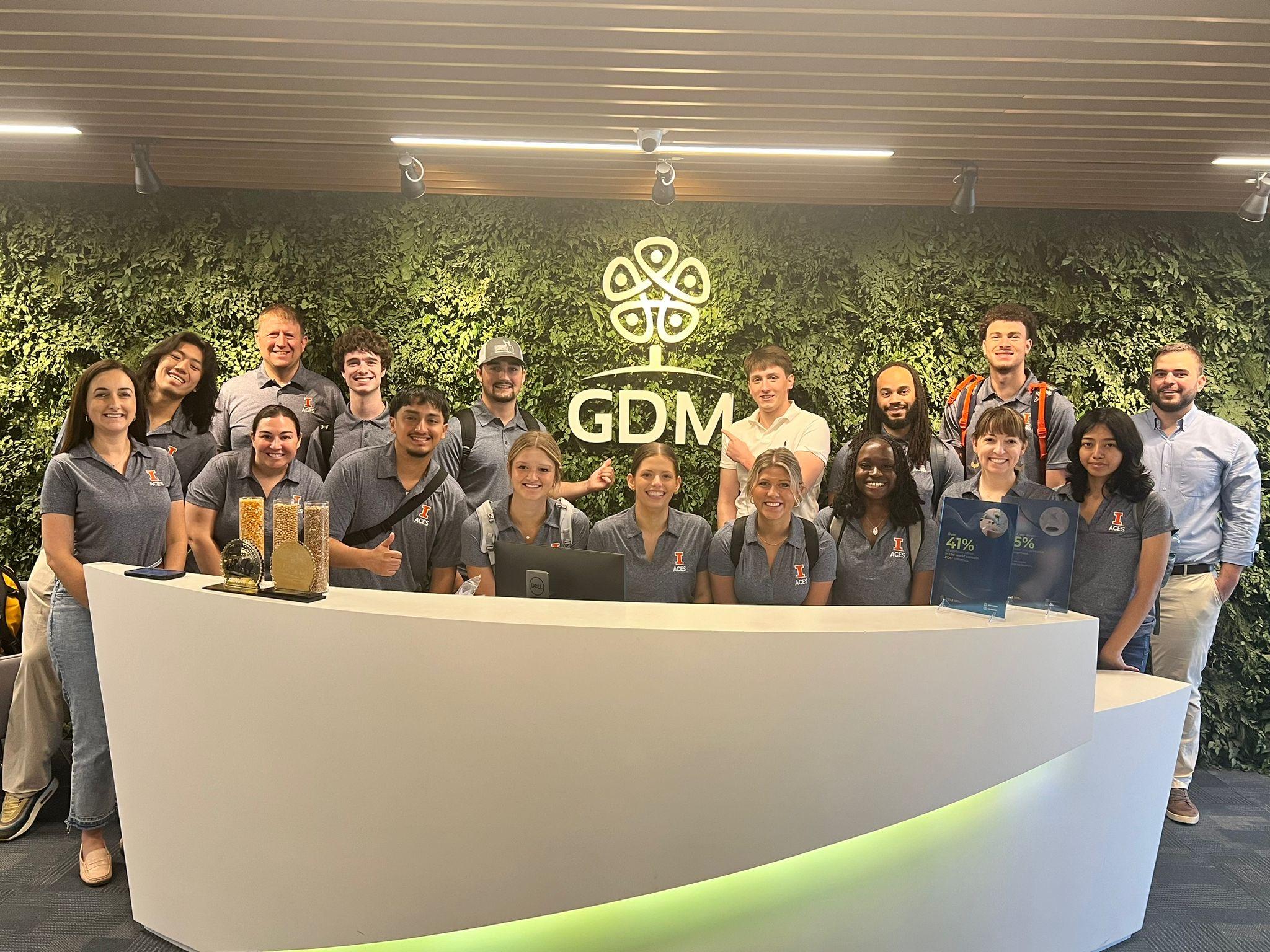Exploring Agribusiness Through A Brazilian Lens

During our time in Brazil with the International Business Immersion Program, we took several visits to agricultural-based companies and organizations where we observed numerous similarities and differences between the Brazilian and US agribusiness sectors. Most notably, everyone we visited was highly focused on innovation and improving production efficiency. Companies like Embrapa Digital Ag, IMBR Agro, and more are all highly interested in implementing technology into farming practices. From biotechnology to crop imagery, the sector seems to be developing rapidly with a lot of investment of time and money into these practices. Similarly, sustainability is at the core of most of these operations. For instance, we visited an organic farm in São Paulo, Brazil which had a field boarder of banana trees. Not only does this practice allow the farm to produce bananas for retail, but it also provides some protection to the field, and helps the farm meet government standards. They also conserve about 30% of the land per regulation here in Brazil. Other examples of sustainable practices we heard of included cover cropping, no-till farming, and crop rotation. Although many conservation practices are regulated here in Brazil, most of the participants we spoke to seemed to be just as passionate about protecting the land. The area here is unique as there is no technical “off-season” like in the U.S., and farmers can produce multiple crop varieties throughout the year. These practices seemingly pay off, as all the systems we visited, from small to large scales, produce beautiful, healthy crops and have rich soil.
Our perspective of international agribusiness broadened while touring core Brazilian agribusiness cities. International agribusiness is a complex and multifaceted industry that touches upon various aspects of economics, politics, and sustainability. Through the many tours these subjects were echoed as the core of each business model. GDM Seeds is a prime example of an agribusiness company that continuously balances the complexities of the industry while maintaining a high market share. This requires the company to be more innovative and technologically advanced than its competitors. Through this complex and future-focused process, thoughtful consideration of regulatory frameworks and ethical practices are essential to ensure efficient productivity to achieve global food security.
During our company visits we discovered a commonality of Brazilian Agribusinesses looking to expand into other markets, particularly the United States. This process takes a lot of strategic thinking and capital into R&D to consider the country’s current market and cultural differences. During the last 8-weeks of the spring semester, we worked in a global classroom with students from Brazil and Mexico to act as consultants for an agriculture technology company, IMBR Agro. This project was so rewarding as we learned about international agribusiness and interacted with students with different cultures and backgrounds via zoom. To conclude this project, we visited ESALQ, the university in Brazil, to meet our teammates in-person and get to know each other better. Additionally, we went as a group to PwC Agricultural Innovation Center to meet the team at IMBR Agro and learn from their perspectives. This was a full circle moment that helped deepen our understanding of international agribusiness.
Another area of takeaway was that agroforestry, which integrates trees and shrubs into agricultural landscapes, can improve soil health and biodiversity. The U.S. should implement policies to enforce sustainable farming practices. Additionally, promoting regenerative agriculture techniques can help mitigate climate change by sequestering carbon in the soil. As we visited GDM in Campinas, they discussed how no till is mainly used across most farms and in test plots. Implementing regenerative agriculture practices could help ensure that U.S. farmers are farming their land for decades to come. Overall, our perspectives on international agribusiness greatly expanded from visiting Brazilian hubs for agriculture!